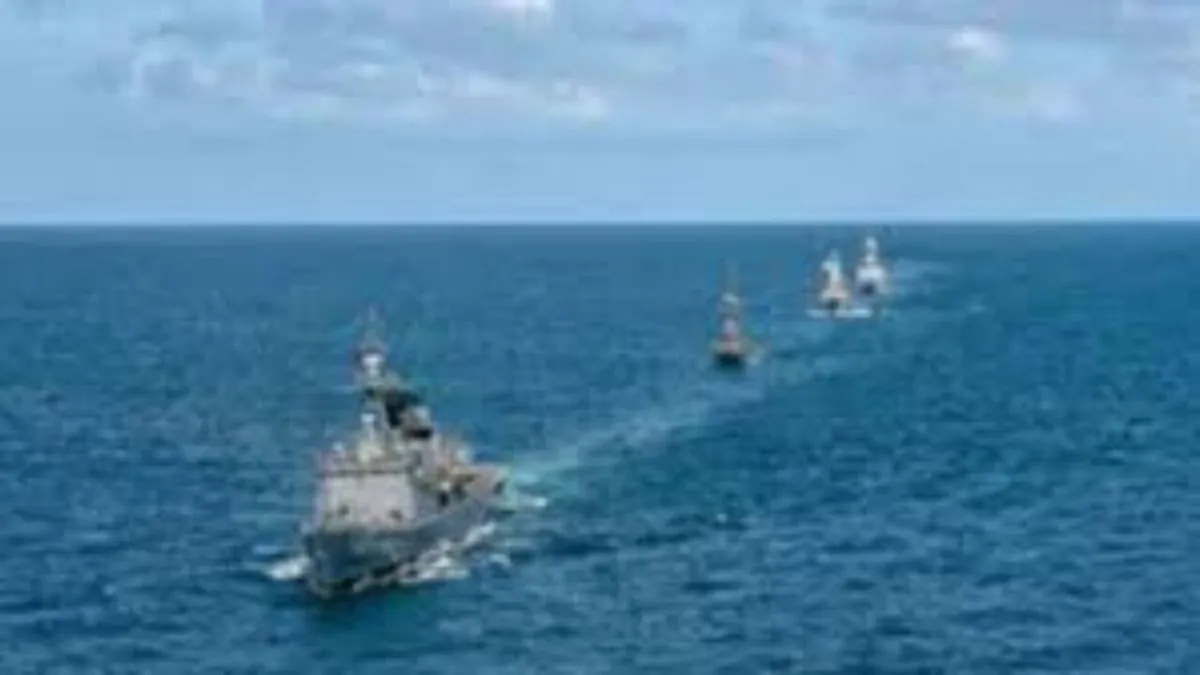On August 2, 2024, the Philippines and Japan conducted their inaugural joint naval exercises in the South China Sea, as reported by the Armed Forces of the Philippines (AFP). This event marks a significant step in regional military cooperation, occurring just two days after similar drills between Manila and Washington.
The exercises took place within the Philippines' Exclusive Economic Zone (EEZ), which extends 200 nautical miles from its shores. The AFP stated, "This activity was part of the ongoing efforts to strengthen regional and international cooperation towards realising a free and open Indo-Pacific."
This naval collaboration follows a landmark military agreement signed between the Philippines and Japan in July 2024, allowing for the deployment of forces on each other's territory. The pact signifies a deepening of ties between the two U.S. allies, reflecting a broader trend of expanding security partnerships in the region.
The South China Sea, a crucial waterway through which approximately $3 trillion worth of annual ship-borne trade passes, has been a focal point of regional tensions. China claims a large portion of this area, conflicting with claims by Brunei, Malaysia, the Philippines, Taiwan, and Vietnam. In 2016, the Permanent Court of Arbitration in The Hague ruled against China's claims, but tensions persist.
Japan, while not directly involved in South China Sea disputes, has its own maritime disagreements with China in the East China Sea, particularly regarding the Senkaku Islands (known as Diaoyu in China). In 2023, Japan announced its most significant military build-up since World War II, marking a shift from its post-war pacifist stance. The country plans to double its defense spending to about 2% of GDP by 2027.
The joint exercise involved two vessels from each nation and included communications drills, tactical maneuvers, and photographic exercises. These activities aim to enhance interoperability and strengthen the strategic partnership between the Philippines and Japan.
"This activity was part of the ongoing efforts to strengthen regional and international cooperation towards realising a free and open Indo-Pacific."
As regional tensions persist, countries in the Indo-Pacific continue to seek ways to cooperate and maintain stability. The Association of Southeast Asian Nations (ASEAN) has been working on a Code of Conduct for the South China Sea, while the United Nations Convention on the Law of the Sea (UNCLOS) provides the legal framework for addressing maritime disputes.
These joint exercises represent a growing trend of military cooperation in the region, as nations work together to address shared security concerns and promote a free and open Indo-Pacific.
